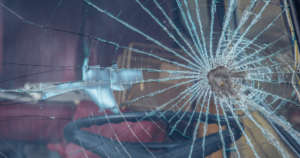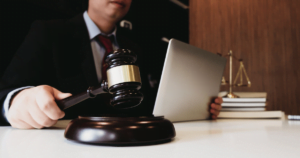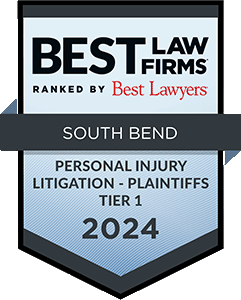 If you were injured by someone acting under the supervision or at the direction of another, you may be able to hold that third party liable for compensation under the legal theory of vicarious liability.
If you were injured by someone acting under the supervision or at the direction of another, you may be able to hold that third party liable for compensation under the legal theory of vicarious liability.
Vicarious liability is a complex subject. Below, we discuss some of the aspects of vicarious liability and how this concept may apply in a personal injury case.
When it comes to determining how much compensation you may be able to recover after an accident, it may be in your best interest to speak to a licensed attorney. Our personal injury lawyers in South Bend are prepared to discuss your claim to see what legal options may be available to you.
What is Vicarious Liability?
Vicarious liability is not based on a person’s own negligence. Instead, it is based on that person’s relationship with the person committing the negligent act. There are two situations when vicarious liability may apply to a third party.
The first is if a person is acting at the direction of the third party. For example, if one person tells a driver to speed up to make a yellow light, but the driver ends up crashing into another vehicle. It could be argued that the passenger should be at least partially liable for any damages that result from the crash.
The second, and more prominent, principle of vicarious liability is when someone commits a negligent act while under the supervision of a third party. This is commonly known as respondeat superior, which means “let the master answer.”
Who May Be Vicariously Liable for Someone Else’s Actions?
When it comes to personal injury cases, third parties that are most likely to be held vicariously liable for another’s actions include:
Employers
Cases involving an employer’s vicarious liability for an employee’s actions must meet certain criteria. The most important of these criteria is proving the at-fault party is employed by the person you are trying to hold financially responsible for your damages.
Remember that as the accident victim, the burden of proof is on you. In a vicarious liability claim against an employer, you must also prove the at-fault party was acting within the scope of his or her employment and was authorized to engage in the conduct that caused you damages.
For example, if the employee was driving a work vehicle and rear-ended you. If the crash occurred while the person was clocked in and was completing an aspect of his or her job, like making a delivery, this person may have a valid vicarious liability case against the employer.
Parents/Legal Guardians of Minors
The parent or legal guardian of a person under the age of 18 is generally liable for the negligent actions of his or her child, Even if the actions of the child were malicious, willful or intentional.
A good example of a situation when a parent could be held vicariously liable is if a distracted teen driver crashed into your car. The child’s parents would most likely be liable for your damages.
Vehicle Owners
Any person who knowingly loans his or her vehicle to another person may be held liable for damages if the driver in the borrowed car causes an accident.
The owner of a vehicle may also be liable even if the vehicle is taken without his or her express permission. If there is implied consent, such as leaving the keys to a vehicle in an area where anyone may access them, vicarious liability may still apply.
Are There Limitations to Vicarious Liability?
As in many areas of law, there is a limit when it comes to vicarious liability.
In 2017, the Indiana Supreme Court issued an opinion that affirmed the state’s longstanding ruling that injury victims could not bring forth vicarious liability claims that argued negligent hiring practices and a respondeat superior claim, it must be one or the other only. This also applies if the employer acknowledges that the accident occurred within the scope of the employee’s duties.
In cases of vicarious liability for the negligent actions of a child, Indiana law, in some cases, caps damages that can be recovered from the parent at $5,000 and specifies that the child must be in the liable party’s custody. For a motor vehicle accident case, this could be a gray area if the parent of the child is the owner of the vehicle.
Have Questions? Call Us Today
If you are unsure about your legal options after an accident, you should strongly consider calling our knowledgeable attorneys. The consultation to discuss your claim is free and there are no fees while we work on your case.
For decades, our attorneys have helped injury victims recover millions in compensation for medical bills, lost wages and other damages.
No upfront fees. No risks. Call (844) 678-1800 today.











